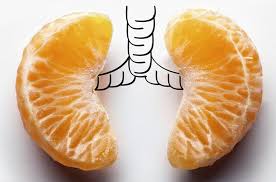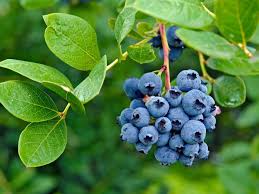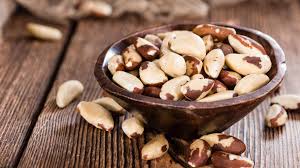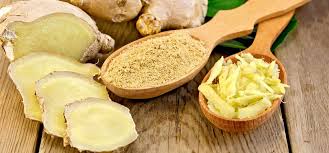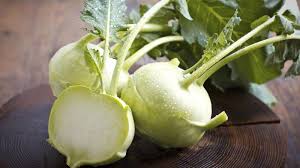Content of the Article
The health of the lungs is essential to overall health. However, common factors, including cigarette smoke and exposure to environmental toxins, as well as an inflammatory diet, can negatively affect this important organ pair.
Moreover, common conditions such as asthma, chronic obstructive pulmonary disease (COPD) and pulmonary fibrosis can significantly affect quality of life.
Studies have shown that lifestyle changes, including following a nutrient-rich diet, can help protect the lungs and even reduce lung damage and disease symptoms.
What's more, specific nutrients and foods have been found to be particularly beneficial for lung function. Here nutrients that are good for the lungs and its benefits…
Good Foods for the Lung
Beet and beet leaves
Beet The vibrantly colored root and green leaves of the plant contain compounds that optimize lung function.
Beet and beet greens are rich in nitrates that have been shown to benefit lung function. Nitrates help relax blood vessels, reduce blood pressure and optimize oxygen uptake.
Beet leaf is full of magnesium, potassium, vitamin C and carotenoid antioxidants, all of which are essential for lung health.
Beaver
Peppers are among the richest sources of vitamin C, a water-soluble nutrient that acts as a powerful antioxidant in our bodies. Getting enough vitamin C is especially important for smokers.
In fact, due to the harmful effects of cigarette smoke on the body's antioxidant stores, it is recommended that smokers consume 35 mg of extra vitamin C per day.
Many studies show that smokers can benefit from higher vitamin C doses, and smokers with high vitamin C intake have better lung function than lower vitamin C intake.
Consuming just one medium (119 grams) of sweet paprika provides 169% of the recommended vitamin C intake.
Apple
Surveys regularly elma has shown that eating can help support lung function.
For example, studies show that eating apples is associated with a slower decline in lung function in long-time smokers. Additionally, consuming five or more apples per week is associated with greater lung function and a reduced risk of developing COPD.
Eating apples is linked to a lower risk of asthma and lung cancer. This may be due to the high concentration of antioxidants in apples, including flavonoids and vitamin C.
Pumpkin
Pumpkin Its brightly colored flesh contains various lung health-promoting plant compounds. It is particularly rich in carotenoids, including beta carotene, lutein, and zeaxanthin - all of which have powerful antioxidant and anti-inflammatory properties.
Studies show that carotenoids with higher blood levels are associated with better lung function in both older and younger populations.
People who smoke will benefit significantly from consuming foods rich in carotenoids, such as zucchini.
Evidence suggests that smokers may have 25% lower concentrations of carotenoid antioxidants than non-smokers, which can harm lung health.
Turmeric
TurmericIt is often used to promote overall health because of its powerful antioxidant and anti-inflammatory effects. Curcumin, the main active ingredient in turmeric, can be particularly beneficial for supporting lung function.
A study in 2.478 people found that curcumin intake was associated with improvement in lung function.
Also, smokers with the highest curcumin intake had significantly greater lung function than smokers with low curcumin intake.
In fact, high curcumin intake in smokers was found to be associated with 9.2% more lung function compared to smokers who did not consume curcumin.
Tomato and tomato products
Tomato and tomato products are among the richest sources of dietary lycopene, a carotenoid antioxidant associated with improved lung health.
Consuming tomato products has been shown to reduce airway inflammation in people with asthma and improve lung function in people with COPD.
A 105 study of 2019 people with asthma showed that a diet rich in tomatoes is associated with a low prevalence of controlled asthma.
Also, tomato consumption is associated with a slower decline in lung function in long-time smokers.
Blueberries
Blueberries They are loaded with nutrients and their consumption has been linked to a number of health benefits, including preserving lung function.
Blueberry is a rich source of anthocyanins such as malvidin, cyanidine, peonidine, delfinidine and petunidine.
Anthocyanins are powerful pigments that have been shown to protect lung tissue from oxidative damage.
One study in 839 people found that blueberry intake was associated with the slowest decline in lung function, and consuming 2 or more servings per week slowed lung function by up to 38% compared to low or no blueberry intake.
Green tea
Green teais a beverage that has impressive health benefits. Epigallocatechin gallate (EGCG) is a catechin concentrated in green tea. It has antioxidant and anti-inflammatory properties and has been shown to prevent fibrosis or scarring of tissues.
Pulmonary fibrosis is a disease characterized by progressive scarring of lung tissue that impairs lung functions. Some research shows that EGCG can help treat this disease.
A small 20 study in 2020 people with pulmonary fibrosis found that treatment with EGCG extract for 2 weeks reduced fibrosis markers compared to the control group.
Red cabbage
Red cabbage is a rich source of anthocyanins. These plant pigments give red cabbage its vibrant color. Anthocyanin intake improves lung function.
What's more, cabbage is packed with fiber. Studies show that people who consume more fiber have better lung function than those who consume lower amounts of fiber.
Edamame
Edamame beans It contains compounds called isoflavones. Diets rich in isoflavones have been associated with a reduced risk of many diseases, including COPD.
One study in 618 Japanese adults found that people with COPD had much lower dietary isoflavones than healthy control groups.
Moreover, isoflavone intake was significantly associated with better lung function and decreased shortness of breath.
Olive oil
Olive oil Consuming it can help protect against respiratory conditions such as asthma. Olive oil is a concentrated source of anti-inflammatory antioxidants, including polyphenols and vitamin E, which are responsible for its powerful health benefits.
For example, a study involving 871 people found that those with high olive oil consumption had a reduced risk of asthma.
What's more, the Mediterranean diet rich in olive oil has been shown to benefit lung function in smokers as well as people with COPD and asthma.
Oyster
OysterIt is loaded with nutrients essential for lung health, including zinc, selenium, B vitamins, and copper.
Studies show that people with higher blood selenium and copper levels have greater lung function compared to those with lower levels of these nutrients.
Additionally, oyster is a great source of B vitamins and zinc, nutrients, which are particularly important for smokers.
Smoking depletes some of the B vitamins, including vitamin B12, which is concentrated in oysters. Studies show that higher zinc intake can help smokers prevent developing COPD.
Yoghurt
Yoghurt It is rich in calcium, potassium, phosphorus and selenium. According to research, these nutrients can help improve lung function and protect against COPD risk.
A study in Japanese adults found that higher calcium, phosphorus, potassium, and selenium intake was associated with increased lung function markers, and those with the highest calcium intake had a 35% reduced risk of COPD.
Brazil nuts
Brazil nuts are among the richest sources of selenium you can eat. A single Brazil nut may contain more than 150% of the recommended intake for this important nutrient, but concentrations vary significantly depending on growing conditions.
Research shows that a high selenium intake can help protect against lung cancer, improve respiratory function in people with asthma, and improve antioxidant defenses and immune function, which can help improve lung health.
Brazil nuts are a concentrated source of selenium, care should be taken not to overeat.
Coffee
In addition to boosting energy levels, coffee can help protect the lungs. Coffee is full of caffeine and antioxidants that can be beneficial for lung health.
Studies show that coffee consumption can help improve lung function and protect against respiratory diseases.
For example, caffeine acts as a vasodilator, meaning it helps open blood vessels and can help reduce symptoms in people with asthma, at least in the short term.
Additionally, a review of 15 studies found that long-term coffee consumption is associated with positive effects on lung function and a reduced risk of asthma.
Chard
ChardIt is a dark green leafy vegetable that is high in magnesium. Magnesium helps protect against inflammation and helps keep bronchioles - the small airways in the lungs - comfortable and prevents airway restriction.
Higher magnesium intake has been associated with better lung function in a number of studies. What's more, low magnesium levels are associated with worsening symptoms in COPD patients.
Additionally, many studies have linked intake of leafy green vegetables like Swiss chard to a lower risk of lung cancer and COPD.
Harp
Harpis a nutritious whole grain rich in fiber. High-fiber diets rich in whole grains have been shown to have a protective effect on lung function and may reduce the risk of death from lung-related diseases.
Antioxidants found in whole grains such as flavonoids and vitamin E also support lung health and protect against cellular damage.
Anchovy
Anchovyare small fish loaded with anti-inflammatory omega 3 fats as well as other nutrients that support lung health such as selenium, calcium and iron.
Eating omega 3-rich fish like anchovies can be particularly beneficial for people with inflammatory lung diseases such as COPD.
A 2020 study found that higher omega 3 fat intake is associated with reduced COPD symptoms and improved lung function.
What's more, eating omega 3-rich diets can help reduce symptoms in people with asthma.
Lentil
LentilIt is high in many nutrients that help support lung function, including magnesium, iron, copper, and potassium.
Garlic
Allicin, sarımsakIt is the main phytonutrient responsible for many health benefits in pea It has antimicrobial, anticancer and blood pressure lowering properties.
Chinese scientists have found that garlic consumption has a positive effect on patients with lung disorders and lung cancer.
Ginger
Gingeris one of the reliable home remedies to treat colds and sore throats. Scientists have discovered that it contains gingerol, a bioactive compound.
It is this compound that is responsible for the pungent taste of ginger. Gingerol also helps prevent asthma, colds, migraines and hypertension.
Apricot
Apricot fruits that are good for the lungsis den. Researchers have found that apricots are great sources of vitamin C, vitamin E, beta-carotene, and lycopene.
All these compounds are antioxidants that help scavenge harmful free oxygen radicals. Apricot has anti-allergic, antimicrobial, anti-inflammatory and anticancer properties.
Broccoli
Broccoli vegetables that are good for the lungis the most known. Scientists have found that broccoli is a good source of sulforaphane (SFN) with antioxidant, anti-inflammatory, anticancer, and antimicrobial properties. SFN has also been found to prevent lung, stomach, and breast cancers.
Grapefruit
This low-calorie fruit is a good source of vitamin C, vitamin B6, thiamine, folic acid, and magnesium. It also contains naringenin, a bioactive flavone with antioxidant and anti-inflammatory properties.
Consuming at least half a grapefruit for breakfast can help remove toxins from the body and reduce inflammation in the respiratory system. However, in some cases, citrus fruits can aggravate the situation. Therefore, it is necessary to consume carefully.
Poultry
Chicken and Hindi They are the most commonly consumed poultry and great sources of lean protein. Scientists have found that a diet rich in poultry can reduce the risk of lung cancer by 10%. Consume hormone-free poultry for the best benefits.
Are there any other foods that you know are good for the lungs?

